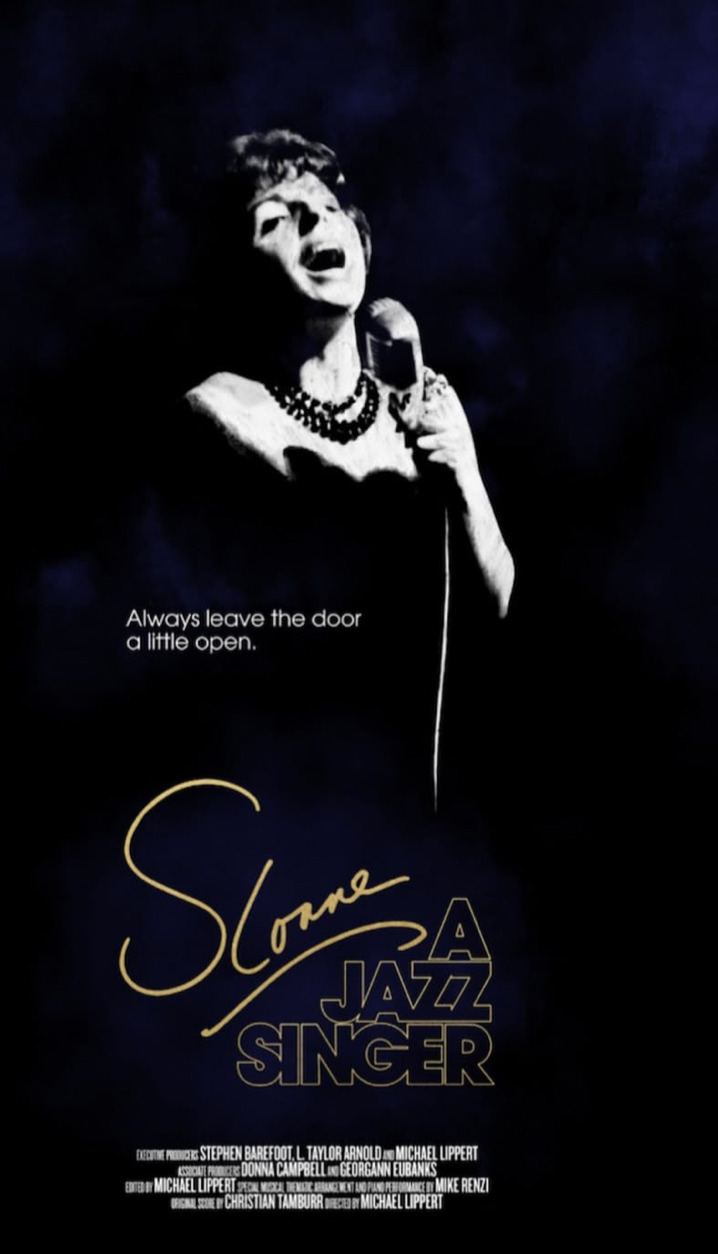
While narrative films are meant to entertain viewers, documentaries are designed to draw attention to realistic struggles that many audiences can empathize with. The new biographical movie, Sloane: A Jazz Singer, is one such documentary that draws attention to the challenges that struggling musicians must work to overcome as they strive to achieve success in their chosen discipline.
The film chronicles the story of unsung jazz legend Carol Sloane, who was among the inductees into the Rhode Island Music Hall of Fame in April 2016. Sloane: A Jazz Singer is an emotionally relatable tribute to the Providence-born jazz singer, who died on January 23 due to complications from a stroke she had two years earlier.
Michael Lippert made his feature film directorial debut on the project. He also served as an executive producer and editor on the documentary.
Filmed in 2019, Sloane: A Jazz Singer follows the titular musician as she prepared for one final live recording at New York’s famed Birdland. After garnering a quick rise to stardom in the early 1960s, she enjoyed a six decade career, during which she was hailed by her peers and critics as one of the greatest vocal interpreters of The Great American Songbook.
However, the musician, who was 82 years-old during the movie’s shoot, is still mostly unknown to the American public at large. However, she did have a massive following in Japan, where she toured earlier in her career. She also never received monetary royalties for the thirty-plus albums she produced.
After years of personal and professional setbacks, Sloane still pursued the artistic passion that began when she was a young girl listening to late night radio broadcasts. She was determined to keep its legacy alive during the last years of her life.
In the days leading up to her legacy performance, the singer shared a multitude of memories while recounting the highs and lows of her fulfilling but turbulent career, which included encounters with such fellow musicians as Ella Fitzgerald, The Beatles and The Rolling Stones. Enlightening personal commentaries are also shared by such notable industry insiders as multi-Grammy winning editor-writer Dan Morgenstern, Grammy-winning singer Catherine Russell, Emmy-winning composer and musician Mike Renzi, Grammy-winning pianist Bill Charlap, Duke University Vice-Provost for the Arts John Brown and Emmy-winning recording engineer Joel Moss.
Sloane: A Jazz Singer is the quintessential biographical musical documentary that intimately chronicles the harrowing yet hopeful story of the titular performer’s faithful adherence to her craft, even as she faced continuous adversities throughout her career. Lippert infused his latest film with an affectionate sense of sentimentality as he showcased that Sloane was a humble, likable person who didn’t pursue a music career for the fame or fortune.
The movie is a visually and emotionally dazzling slice of life tribute. Lippert expertly interweaves photographs and clips from the singer’s entire career with day-in-the-life moments as she prepared for her final live recording in New York City throughout the film’s superb transitional shots and storytelling.
The clips in particular highlight how good of a singer Sloane was, and that she deserves being known for her subtlety and depth of interpretation on her tracks. Her captivating vocal range is extraordinarily highlighted in a 1962 clip from the television show Talent Scouts, during which her singing rivals that of the Grammy-winning Judy Garland.
One noteworthy day-in-the-life moment that emphasizes Sloane’s modesty is the documentary’s opening scene, which follows her as she’s set to enter a supermarket. The store manager, who witnesses the film crew chronicling her day, asks her if she’s famous and he just doesn’t realize it.
When she informs him she was a jazz singer and he still doesn’t recognize her, despite him being a jazz fan, she doesn’t take offense. Through intimately framed cinematography by Donald R. Monroe that highlights Sloane’s humility, she confidently and self-assuredly continues on to do her shopping.
Besides its captivating score and visuals, Sloane: A Jazz Singer also thrives in its examination into the moral dilemmas in the music industry, particularly those that were prevalent during the beginning of Sloane’s career and are still commonplace today. The movie’s overarching story questions if Sloane didn’t reach her full potential in her career because she was a female musician in a male-dominated musical genre while she was starting out during the 1960s.
Sloane’s undeniable vocal talent are highlighted through the clips of her performances that are featured in Sloane: A Jazz Singer. The film also highlights how she made the right connections to garner further success through recollections of how she played with Lenny Bruce, Richard Pryor, and Phyllis Diller, and also spent time with the Beatles and the Rolling Stones.
However, those connections didn’t lead Sloane to receiving more exposure and performances on national television or in live venues. The effects of that lack of attention is highlighted in one heartbreaking scene that shows her disappointment when she realizes that the New Yorker didn’t run a notice about her upcoming show at Birdland.
Sloane: A Jazz Singer is a heartbreaking but equally hopeful documentary that emphasizes how a person’s faithful adherence to their craft, even when they’re faced with multiple struggles, including a lack of widespread recognition, can still make them humble and fulfilled. Through Lippert’s masterful editing of sentimental photographs, clips and recollections about Sloane’s entire career, combined with naturalistic cinematography and a nostalgic score, the movie is a sentimental tribute to the titular musician.
Sloane: A Jazz Singer screened at the Providence Place Showcase Cinema de Lux 16 & IMAX theater earlier this month during the Rhode Island International Film Festival, where it won the first prize in the feature documentary category.
Grade: A-

